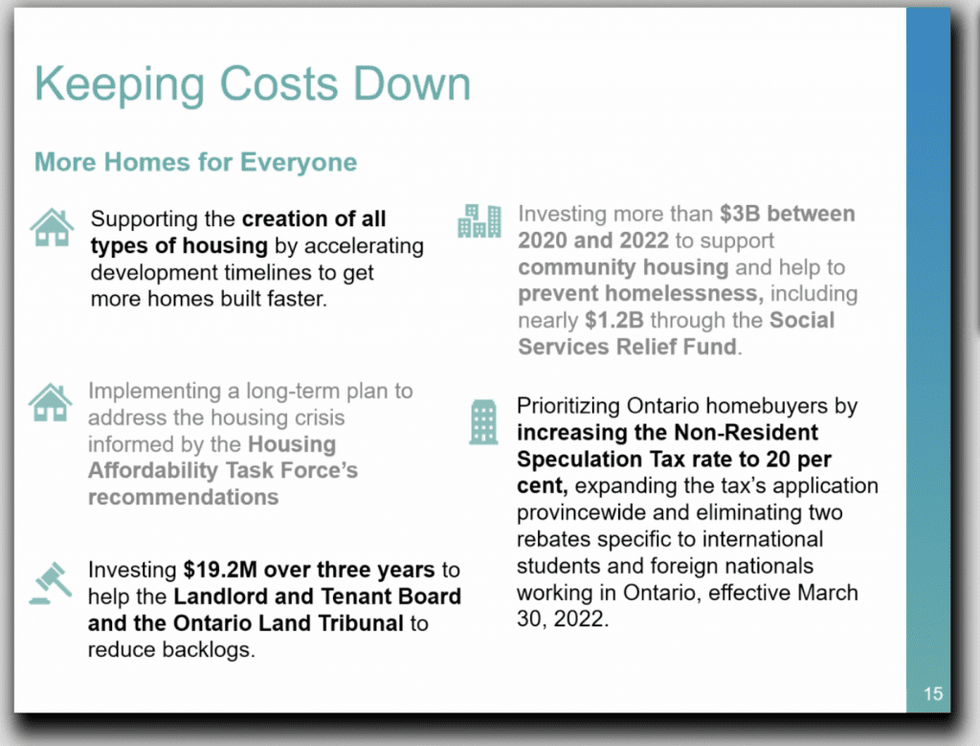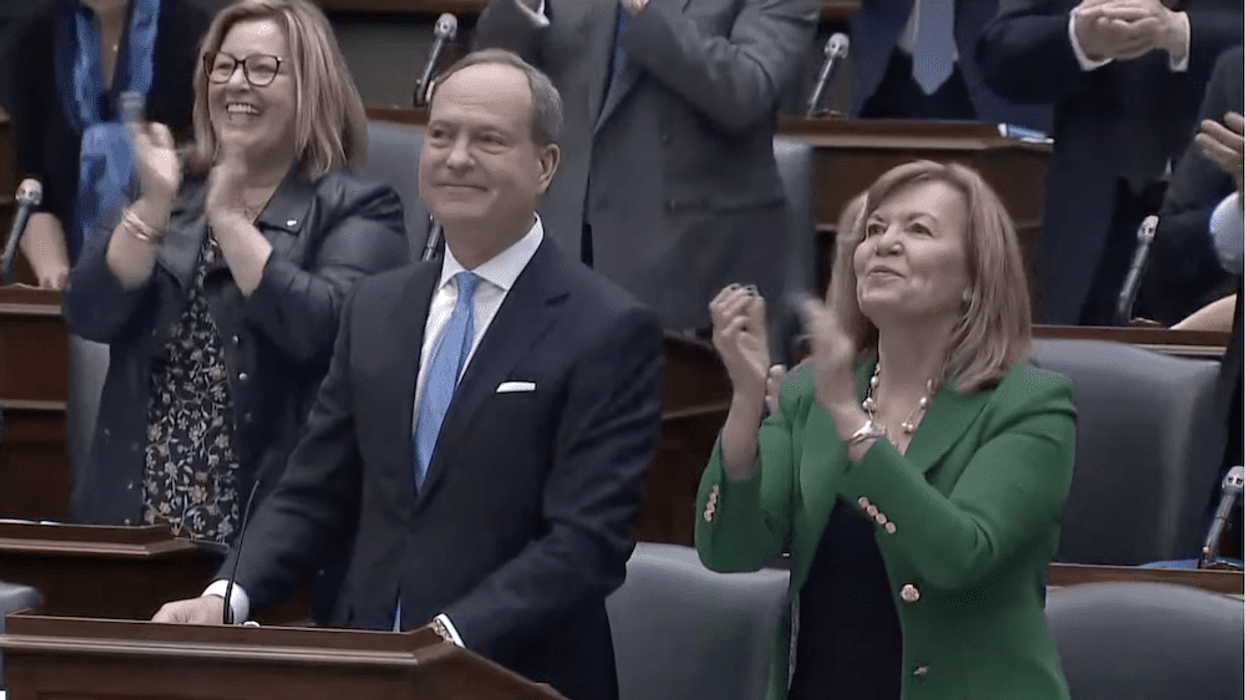Today, Provincial Finance Minister Peter Bethlenfalvy tabled the 2022 provincial budget in the Ontario Legislature, titled “Ontario’s Plan to Build”.
Unlike the 2021 budget, which had a firm focus on leading Ontario’s economy through the COVID-19 pandemic through health care and economic measures, this year’s edition doubles down on the Ford government’s commitment to building new housing supply, and takes aim at development timelines.
However, there weren’t any fresh housing initiatives included in the new record $198.6B-budget. Instead, it reiterated recently-announced measures, including the Housing Affordability Task Force's mandate to build 1.5M homes over the next 10 years.
MORE BUDGET COVERAGE:
- Ontario Budget Earmarks $2B For Infrastructure and $19B for LTB, OLT
- Ontario Budget Adds Another $4B to Highway Expansion Funds
These include the province’s objective to implement a long-term plan to address the housing crisis, as informed by the HAFT's 55 recommendations. It also re-stated the spend of $19.2M to address the backlog currently experienced by the Landlord and Tenant Board and Ontario Land Tribunal, as well as the $3B spend previously allocated between 2020 and 2022 to support community housing and prevent homelessness, including nearly $1.2B via the Social Services Relief Fund.
"One of the defining affordability challenges of our time is housing. Our province is growing and every year, people from across Canada and around the world choose Ontario to build their careers and raise their families, here in Ontario. But every single year, they're putting pressure on our housing supply and the dream of homeownership becomes further and further out of reach," stated Bethlenvalvy in the Legislature. "In fact, as part of our plan, we'll increase the housing supply by building 1.5M new homes over the next 10 years. It's time to put more housing options within the reach of families who so badly need them. When we talk about building new homes for families, we say, let's get it done."

Most recently, the provincial government announced a plan to build 40,000 homes near transit hubs in York Region, as well as new regulations that would allow open bidding during the real estate offer process -- if the seller agrees. An increase to the Non Resident Speculation Tax to 20% was announced on March 29, as well as its expansion beyond the Greater Golden Horseshoe to the entirety of the province.
READ: “An Easy Scapegoat”: Ontario Foreign Buyer Tax Increase Unlikely to Have Impact
On April 18th, the More Homes for Everyone Act received Royal Assent; the plan proposes a number of changes to existing housing legislation -- including the Planning Act and City of Toronto Act -- including imposing new timelines for municipalities to make development and zoning approvals. The Act also announced new changes to Ontario’s Building Code, allowing 12-storey mass timber-frame buildings, and the streamlining of multi-unit building approvals.
However, the Act left out key proposals brought forth by the province-appointed Housing Affordability Task Force on February 8, namely a call to remove exclusionary zoning in all neighbourhoods to allow infield housing as-of-right including laneway suites, garden suites, and multi-family housing -- up to a maximum of four units and four storeys - on lots previously zoned for single-family homes.
The province announced its updated GDP forecast, calling for 3.7% growth in 2022, before modering to 3% in 202, 2$ in 2024, and 1.9% in 2025. Total interest on debt expense is projected to increase from $13B in 2021 - 2022, to $14.8B in 2024 - 2025. According to their projections, the province could carry a $12.3B-deficit next year - though it could go as low as $4,9B or as high as $17.8B. If the economy continues to grow at its post-COVID pace, there is the possibility of a $2.4B surplus, though a $7.6B shortfall is a likelier scenario.
Today's measures follow a number of other spending rebate and tax cut announcements, as the incumbent government ramps up for the impending election season. According to the CBC, these promises total slightly more than $10B for items including vehicle registration fee refunds, health centre construction, and gas and fuel tax cuts.
As the Ontario legislature is set to adjourn following tabling, this budget is essentially the party’s costed election platform -- which they famously did not produce prior to the 2018 election. The provincial election is set to be called in the coming days, prior to the deadline of May 5, 2022.





















